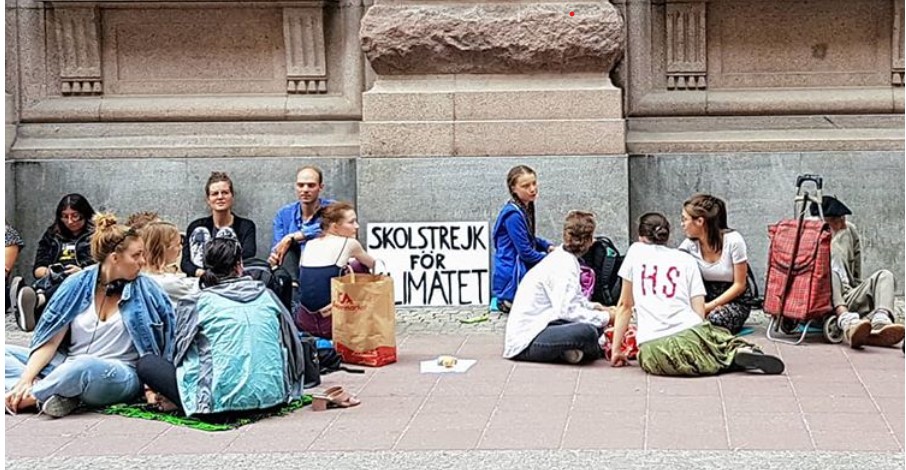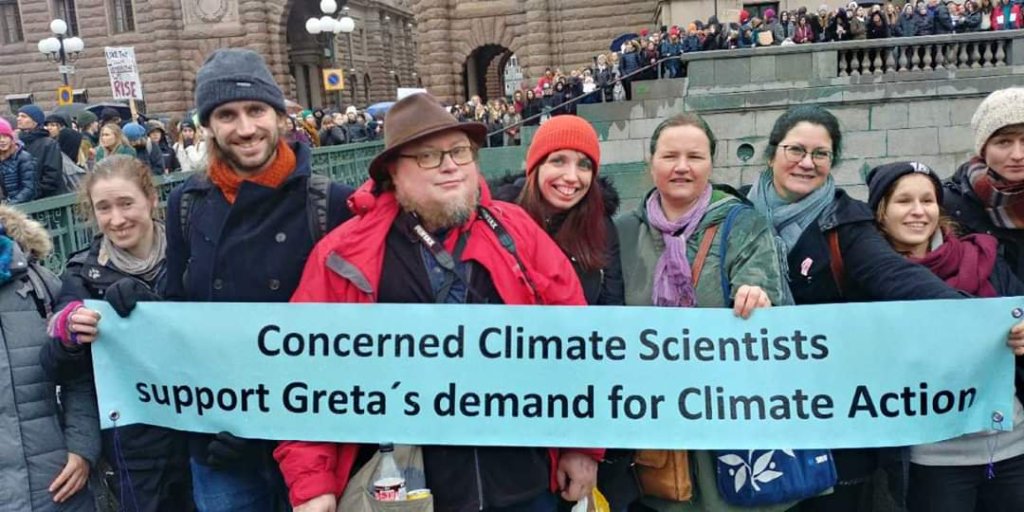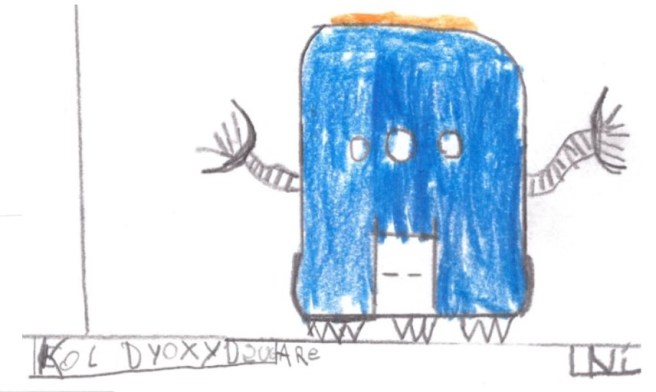I thought, for a long time, that it was especially hard to talk climate change, and its implications upon their future, with children and youngsters.
I was wrong.
A few years ago I promised a friend to write about the experience I had of talking climate change and the future with children. Up to then my experience was limited to my own children (now teenagers), and school children of the age 6-12 years in schools I had visited. Their teachers had invited me to talk about what it is to be a scientist, a researcher, and about climate change and some other environmental problems that the school kids were interested in. There is this idea that we scientists that serve at a University have three tasks: 1) Research. 2) Teaching. 3) Inform the public and decision makers about research. Often we don’t do that much of the last third task, partly because it is rarely financed, and partly because most of us have little training in communication outside the academic world. My attempts to reach out to school children fall within this so called “third task”.

I had not yet had the courage to do that writing when I came to met Greta Thunberg for the first time in August 2018. I had seen a notice on the web, I think it was the first time Dagens Nyheter (the largest news paper in Sweden) wrote about that lonely school kid’s protest outside the parliament, and the story intrigued me. I decided to seek her out and see if I could somehow help her by doing that 3rd task.
When I came there around lunch time August 24, she already had a small group of other school children whom had joined her. They were all sitting on the pavement up against the parliament wall. The only thing that separated her from the others were the sign she had made, the now so famed sign: “Skolstrejk för klimatet”. I introduced myself to Greta with a “Hi, I’m a scientist at Stockholm University. I work with air pollution and with climate change, and some climate feedback processes.” We chatted for maybe half an hour, we were sometimes interrupted, I ate an apple, some of the others asked me some questions. It soon became clear to me that this young girl was very well red on climate change. I suspect she has red large parts of the IPCC reports, not only the summaries for policymakers, but some of the more substantial parts, and some other key publications. She was certainly better educated on climate change than the politicians I have discussed with, and most NGO people I know that are active on climate change. The discussion led of course to why the society has not yet acted. I had then been reading several publications by psychologist’s on that matter (such as “Don’t Even Think About It” by Georg Marchall, “Why Aren’t We Saving the Planet?” by Geoffrey Beattie and the Ph.D. thesis of Kirsti Maria Jylhä: “Ideological roots of climate denial”) without getting much wiser. I had also formed my own ideas on why the scientific community had failed, and this I tried to explain to Greta. I pride myself in that while she had already been visited by many journalists and politicians, Greta said I was the first climate scientist to visit her.
It soon became clear to me that this young girl was very well red on climate change. I suspect she has red large parts of the IPCC reports, not only the summaries for policymakers, but some of the more substantial parts, and some other key publications. She was certainly better educated on climate change than the politicians I have discussed with, and most NGO people I know that are active on climate change. The discussion led of course to why the society has not yet acted. I had then been reading several publications by psychologist’s on that matter (such as “Don’t Even Think About It” by Georg Marchall, “Why Aren’t We Saving the Planet?” by Geoffrey Beattie and the Ph.D. thesis of Kirsti Maria Jylhä: “Ideological roots of climate denial”) without getting much wiser. I had also formed my own ideas on why the scientific community had failed, and this I tried to explain to Greta.I will write more on that subject later on.
While it was clear that she was very clever, and well read on climate change, Greta also gave a shy impression. I could not then imagine that this young woman would soon speak with great confidence to 100,000’s of people and to the world leaders. She has certainly grown with the task in a fantastic way. In fact, I felt a bit sorry afterwards, because I suspected that she would be disappointed, and discover that nothing changed despite her efforts. Now, knowing what later happened, that sounds silly. Perhaps I had projected my own previous disappointments on her?

After this first visit, I have visited Fridays for Future on the street several times, together with other scientists, and been there on most of their big events. Due to this I have talked with a lot of somewhat older kids than before, teenagers. I was still in in the illusion, that it had to be difficult to talk climate change with children, when until I first met Greta in August 2018. That changed then, not because of only Greta herself, not in a big flash, or something like that, but because after this I have repeatedly visited Fridays for Future on the street, together with other scientists, and I’ve been there on several of their big events. As a result I have talked a lot with many of the somewhat older kids, teenagers, that makes up the core of Fridays for Future, and hence I’ve got experience from an older group of youngsters.
But let’s start with the youngest. In my, limited but not insignificant, experience, even the younger kids have today all figured out that something is going on called “climate change”, and that it will have implications on their future. Some of them already know a lot, others have picked up unfortunate myths with the facts, indicating that they already at that age get a lot of information from the web. It also has the effect that they have a built up need to ask questions and get answers from someone they can trust. The last class I visited had before my visit written down questions that their teachers gave me, so that I could prepare. Most of them was on climate change, though there were also a variety of other questions, from micro-plastics (a lot of that actually) to the big bang!

Despite these side issues, they gave me a lot of very well articulated questions, like the examples here. It also became clear from our discussion over their questions, that they had the perspective to understand that these changes would to a large part take place while they grow up and during the rest of their lifes. And they wondered what it meant for them. Not with a panic, but with an urge to get answers. I suspect there were a handful of kids in that class that bombard their parents with questions, and several of them stated that they had become, or wanted to be vegetarians. As one of them expressed “I don’t have a car, so I cannot stop driving, but I can stop eating meet!”.

The teacher had also asked them to suggest changes or inventions that could help reduce the climate change problem. As a result I had received carefully written lists of what we could do to mitigate climate change (though non of them used such a difficult word as “mitigate”). These lists included: “stop driving cars” or “drive less cars”, “stop flying” or “go with train, not in the air”. “Eat more salad and less meat”, “We should be vegetarians”. Many of these suggestions where changes in behavior, and they stated when we discussed this, that they were prepared to do these changes themselves. The lists also included technical innovations, and I received as well detailed drawings of their inventions. It is a small group, just one class, to base such an observation on, but I think there were a difference in between boys and girls. The boys wanted technical wonders that solved the climate problem, while flying high and fast, preferably. The girls, while also including some technical solutions, also included behavior and consumption changes. I might have imagined this difference. It would be interesting to see if someone have studied it on a larger number of children.

